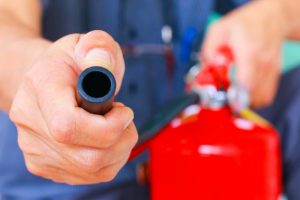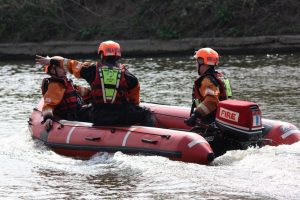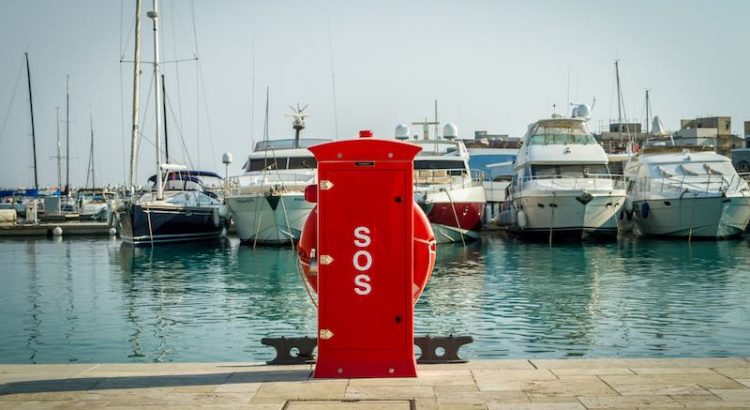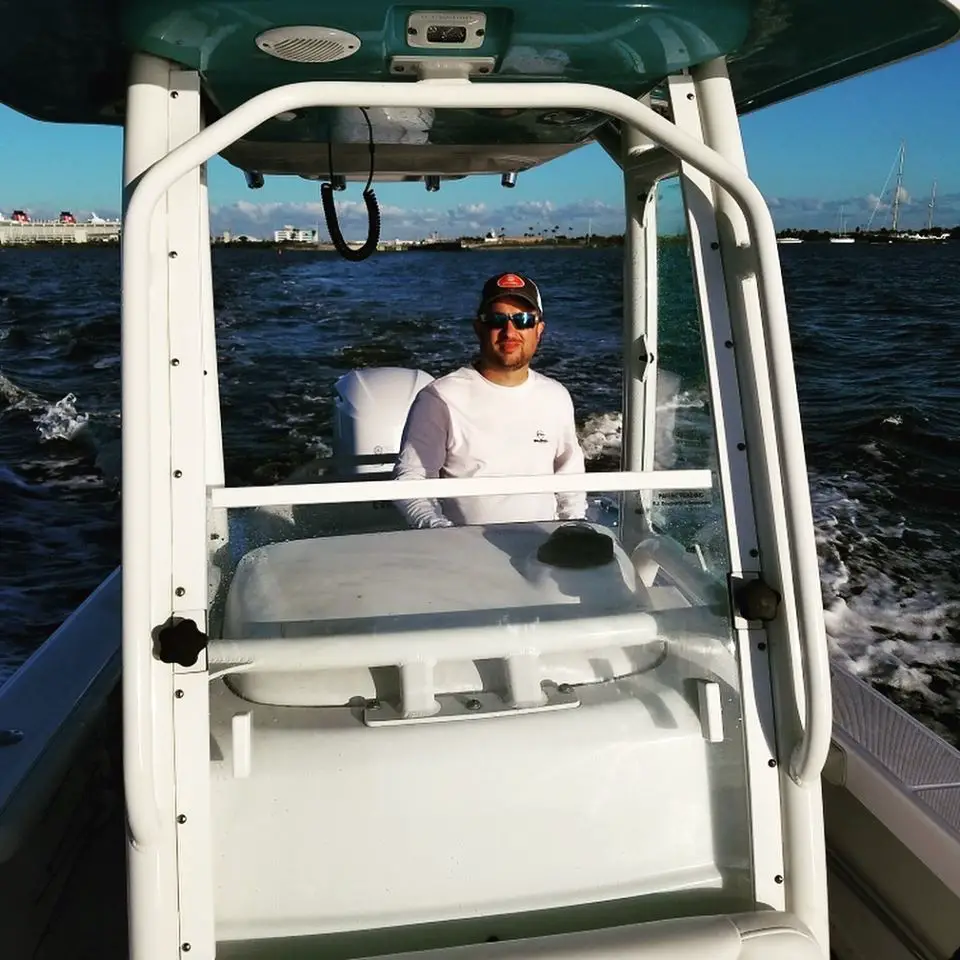This page contains affiliate links. This means that we may get a small commission for recommending products, if you choose to click on something and buy it. This does not cost you anything, but we wanted to be honest and let you know!
(Last Updated On: )Being surrounded by water does not equate to being fireproof; isolation from the land makes your situation even more dangerous.
Factor in as well all the flammable items you have onboard. It’s literally “playing with fire” when you embark without going through your fire protection checklist.
Table of Contents
6 Sure-Fire Causes of Boat Fire
“Knowledge is power.” Knowing where and how a fire starts is the best way to prepare suitable preventive measures.
1. Off-Boat Sources. 26% of boat fires start externally. According to BoatUS Marine insurance claim files, the most common cause is when something else combusts – it could be part of the marina, a storage facility, or other establishments in close proximity to a boat.
And marina fires spread quickly; once a fire starts in one boat, it rapidly torches its neighboring boats.
2. Engine. It is the place where fuel (gasoline or diesel), and an ignition source (heat or spark), are most likely to come together.
It is best for engines 20 years old and above to get a professional electrical technician to check on all the wiring harnesses.
3. Other DC Electrical. Faulty installation of battery-related wirings, once a DC wiring issue produces heat, fire can escalate quickly.
4. AC Electrical. The luxury of air conditioners, microwaves, refrigerators, and other appliances makes boat life extra pleasurable, but it also increases the risk of electrical overload and fire.
The connection between shore power pedestal and the boat’s shore power inlet often causes AC electrical fires.
5. Other Engine Problems. Lack of cooling water for your engine leads to overheating, which in turn starts a fire. Such incidents may be caused by going through muddy or dirty waters.
6. Batteries. Once your voltage regulator turns ten years old, the failure rate starts to climb, which makes it a high risk in catching fire.
Make sure to have it checked religiously; then, when your regulator hits 15 years old, it’s time to replace it.

Equipment
1. Smoke Alarm. It only takes a few minutes to install this life-saving device. They sense above the average amount of smoke, which triggers the alarm.
2. Fire Extinguishers. The most common type of boat fire is caused by gasoline and makes the Marine-rated Class B fire extinguishers the class required on most boats.
Use Extinguishers on small fire or when you want to pave a path to escape the flames. It is wise to have these placed on risky parts of the boat and exits.
3. Carbon Monoxide Alarms. This detector will alert you of poisonous Carbon Monoxide (CO) presence on your boat.
4. Gas Detection System. The usage of a gas cylinder on a boat increases the tendency of a boat fire.
Peruse a gas detection system, which comes in handy, especially when you don’t regularly hand-pump the bilges. Routinely push the indicator test button to check for gas leaks.
5. Fire Blankets. Boats that have cooking facilities must always have fire blankets kept nearby, accessible for immediate use so that any kitchen fire can be dealt with efficiently and quickly as to prevent the fire from spreading.
You can also use this to shielding you or somebody else as you escape the fire.
Fire Protection Tips
Housekeeping
1. Keep the dock clean and clear. Don’t leave engine parts, tools, or cleaning equipment littered on the deck or inboard.
2. Proper disposal of used flammable items. E.g., Oily rags should be disposed of in a metal bin with a tight lid.
3. If you are planning a romantic candle-lit dinner, ensure that your candles properly placed and secured in fireproof holders. And never leave lit candles unattended.
4. Store flammable liquids in containers with tight lids and positioned upright. Place the containers in lockers that vent outboard
5. No cigarette or any smoking below deck.
6. When not in use, unplug appliances.
7. For boat furnishings, lean on furniture that has a fire-resistant label.
8. Keep curtains, towels, sheets, and any other fabrics away from heaters.
Electrics
9. Regularly check and replace cord sets. Worn, scorched cord sets and damaged shore power connections are typical fire starters.
10. Choose only Underwriter’s Laboratory (UL) marine quality approved cord sets and connections.
11. Before starting inboard engines, consistently vent engine bays.
12. Always hire trained marine electricians for installations and services on your boat’s electrical needs.
13. Do not leave electrical equipment unattended while operating.
14. Always turn portable heaters off when leaving the boat.
15. Do not overload adaptors; apply the one plug per socket rule.
Gas Safety
16. Turn off gas valves when not in use.
17. Stow butane and propane gas bottles in cockpit lockers that drain overboard.
18. Open the hatches and pump the bilges to clear gas build-up.
19. Routinely check and replace (when necessary) gas hoses.
20. Instead of using scented candles, enjoy potpourri and oil diffusers, which are far safer and do not tend to combust.
21. Do not restrict airflow by blocking vents or air gaps.
22. Portable LPG camping equipment is not safe for use aboard.
Actual Fire
1. Never try to enter a smoke-filled room.
2. Do not trap yourself inside the bathroom, it may seem comforting amid fire, but it is not.
3. Stay low where the air is clearer.
3. Air is an essential ingredient for fire. If possible, do not open engine hatches or doors.
4. Move as far as possible you can from the fire, do your best to get to the deck and take your handheld VHF radio with you.
5. Call the coastguard immediately, make a Mayday call and/or display distress signal
6. If you need to break a glass window or door, cover yourself with a blanket to keep you from getting an injury.
7. If you are inland, do not try to get back to your boat. Stay out and call for help.
Escape Plan
1. Loop everyone in, so that they’ll know what to do if a fire breaks out while onboard.
2. Educate all passengers on where and how to operate emergency cut-off valves and switches.
3. Make known the location of life jackets to your guests, and confirm whether you have enough onboard.
4. Have the torch in an accessible place, to aid escape at night.
5. Never block exits and keep keys at hand.
6. Do not lock or bolt doors and hatches from outside.
7. Keep a hand-held VHF radio, fully charged, ready to use, and waterproof.
8. Invest in a waterproof ‘grab-bag,’ in case of emergency, you can easily stow valuables in it and hand carry it to safety.
9. Always monitor your location; if needed, you can quickly provide it to rescuers.




